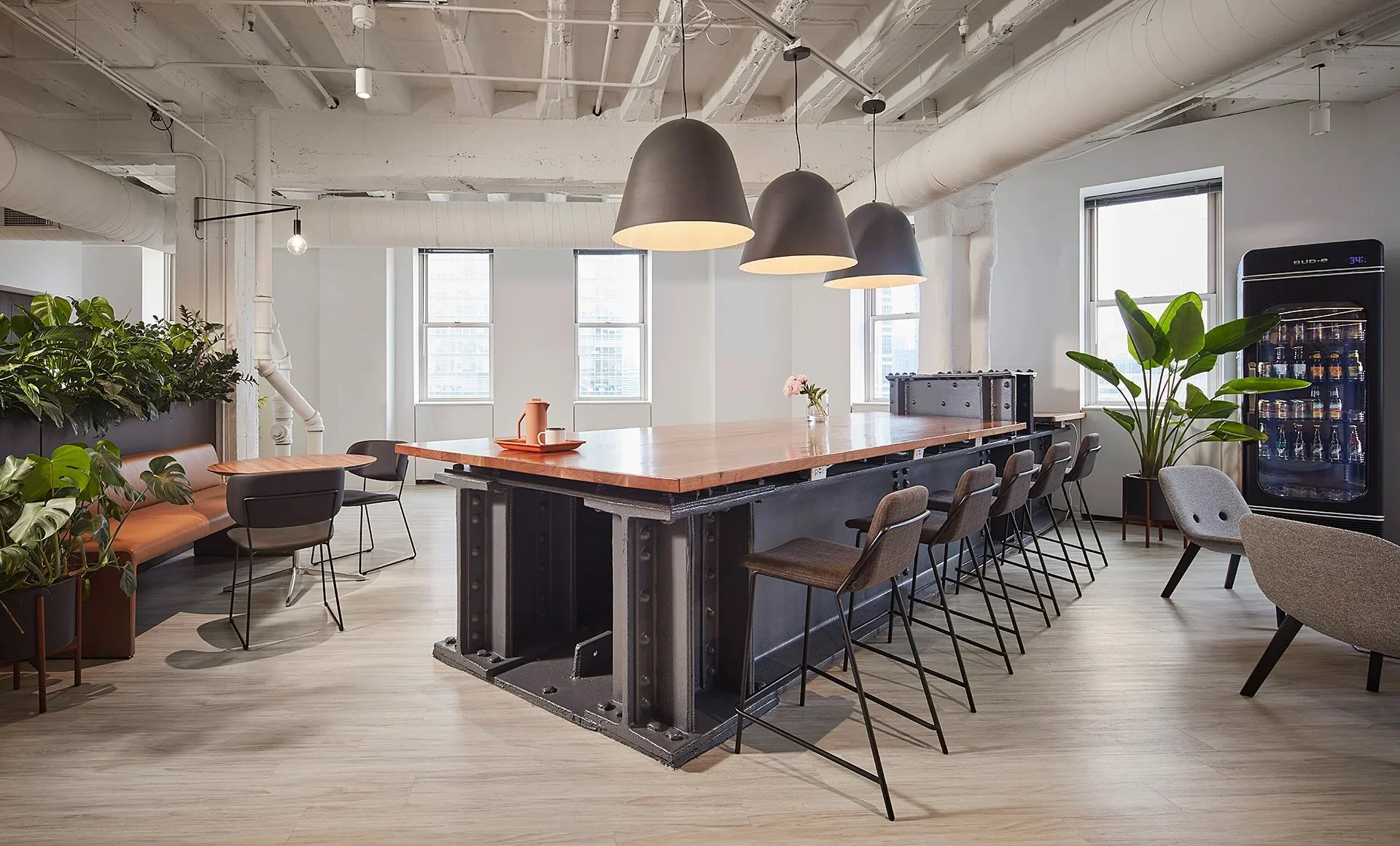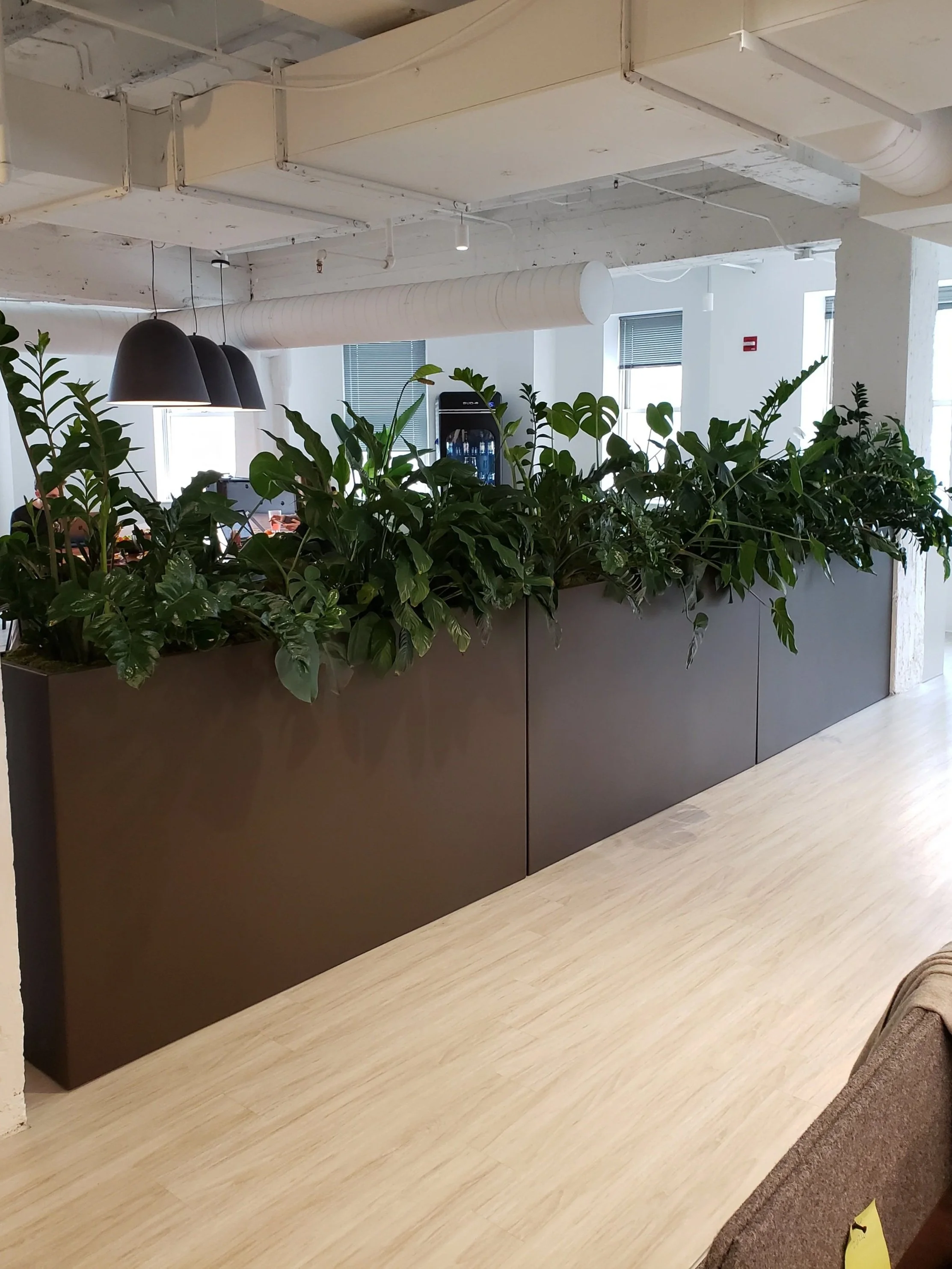The 7 Unexpected Benefits of Plants in the Office
If you had to guess the most simple and cost-effective ways to improve your office environment and maximize your workday, would plants be at the top of your list? Believe it or not, they should be.
Could plants be the secret to getting more out of your workday? According to extensive research, all signs point to yes.
In fact, some of the world's most successful companies are incorporating greenery into their office design – and for a good reason.
So, whether you're a large organization or a professional working from their own home office, you can easily reap the benefits of plants in the office.
Here's why.
7 Big Benefits of Plants in the Office
Coined by Harvard University naturalist Edward O. Wilson, the term "biophilia" describes what he saw as humanity's innate tendency to be drawn towards nature and to feel a strong love, affinity, and craving for it.
What does this tell us? It tells us that people are drawn towards nature in a profound and impactful way. So, it's only logical that being surrounded by natural elements offers significant physical and psychological benefits. And when you fuse it into the place where people spend a significant part of their lives – the office – you can use these benefits to achieve greater business outcomes.
The seven main benefits of plants in the office are:
Stress Relief
Improved Productivity
New Friends
Purified Air
Reduced Noise Levels
Bolstered Creativity
Decreased Absenteeism
1. Stress Relief
Image from Lisa Fiel, of LBF Flowers, NY, NY
Have you ever felt stressed out and gone for a walk in a nearby park to regroup? Did it work? The odds are that it probably did.
That's because plants are naturally inclined to give us peace of mind. And that same effect can be incorporated into the design of your office to reduce stress.
In fact, a study by the new University of Technology, Sydney, found significant reductions in stress among workers when plants were introduced into their workspace. And these reductions were significant, including:
37% decrease in tension and anxiety
58% drop in depression or dejection
44% decrease in anger and hostility
38% reduction in fatigue
2. Improved Productivity
As much as you'd like to think your office space is tailor-made for productivity, you may be surprised that 70% of workers admit they feel distracted at work.
Luckily, increased productivity is one of the benefits of plants in the office.
According to research by the University of Exeter, employee productivity jumps 15% when previously "lean" work environments are filled with just a handful of houseplants. Adding just one plant per square meter even improves memory retention and helped employees score higher on basic tests.
What's more is that the Attention Restoration Theory suggests that looking at nature can shift the brain into a different processing mode, making employees feel more relaxed and better able to concentrate.
3. New Friends
Image from Lisa Fiel, of LBF Flowers, NY, NY
Plants as friends? You read that right. Taking the stage at a TEDxWhiteRock thought-leadership conference, Canadian engineer Mike Robinson shared a novel approach that uses desk plants to boost employees' accountability.
Instead of simply giving each employee a desk plant or dressing the office in greenery, Robinson asked his team to choose their desk plants and make their decisions based on the perception of the plant's feelings.
He explained that it prompted employees to put themselves in the perspective of the plant. Then, they would have to choose which person they wanted to be their new friend. This encourages ownership and heightens a sense of accountability.
The results? Robinson's empirical observations suggest employees are working more efficiently since choosing their "plant friend," and he says no plant has died in five years.
4. Purified Air
In workspaces, plants have proven to improve air quality significantly.
The University of Technology in Sydney found that indoor plants can help reduce carbon dioxide levels by about 10% in air-conditioned offices and by about 25% in buildings without air conditioning.
The best plants for the job? Palms.
But if you can't get your hands on any palms, don't worry. Any medium-sized plant over 20 centimeters in height will make a big difference so that you can breathe easily and work happily. For more information on how plants purify air, check out How to Grow Fresh Air.
5. Reduced Noise Levels
What's the most affordable noise control solution for offices? If you guessed plants, you're right. And the reason why is fascinating.
While many noise control solutions simply insulate against noise pollution, plants are able to absorb the sound. This allows them to reduce the distracting effects of background office noise and chatter.
According to research from London South Bank University, all you need to do is position large planter pots in multiple locations along the edges and in the corners of rooms, and you'll experience a notable reduction in noise pollution.
6. Bolstered Creativity
Have you ever felt inspired by a plant? Maybe not consciously. But according to The 2015 Human Spaces Report, you probably have.
The report concluded that employees whose offices included natural elements scored 15% higher for creativity than those whose offices didn't.
As incredible as it sounds, creativity truly is one of the benefits of plants in the office.
7. Decreased Absenteeism
When you consider factors like decreased stress and improved air quality, it wouldn't be a stretch to conclude that plants might also lead to improved wellbeing and, in turn, reduced absenteeism.
And while evidence to back up this claim is scarce, a small study by the Agricultural University in Norway found that the introduction of plants to one office was linked to a 25% decrease in symptoms of ill health including fatigue, concentration problems, dry skin, and irritation of the nose and eyes.
Despite all the evidence proving the benefits of plants in the office, the aforementioned 2015 Human Spaces Report, which studied 7,600 office employees in 16 countries, found that 58% of workers don't have a single live plant in their workspace.
If you want to add plants to your office space, it can be an easy, cost-effective, and impactful way to boost your wellbeing and make the most of your workday. All you need are great planters and some greenery to live inside them.
Contact us to speak with one of our experts to learn more about the benefits of plants in the office or for help choosing the right planters for your workspace.








